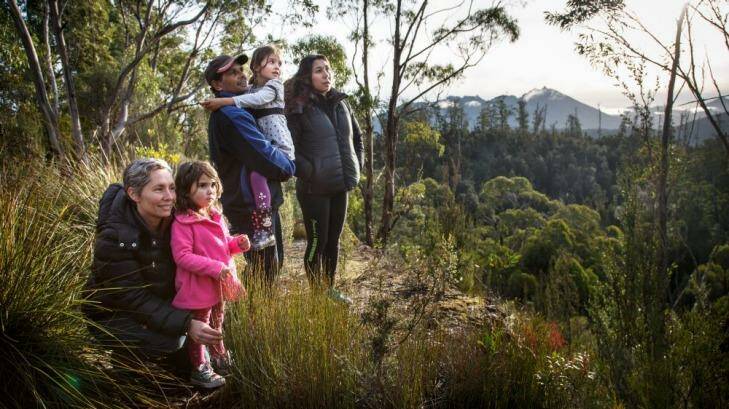

UNESCO's World Heritage Committee has summarily dismissed the Abbott government's bid to wind back protection of Tasmanian forests.
The committee meeting in Doha took just seven minutes to consider the bid, which member nation Portugal called "feeble", and setting an unacceptable precedent for the future.
No country spoke in favour of the bid to de-list 74,00 hectares of old-growth forest, which official cultural and natural values advisers told the meeting would weaken the Tasmanian Wilderness World Heritage Area.
Colombia and Germany supported the recommendation to reject the de-listing, but only Portugal spoke at length to the meeting in a passionate defence of the World Heritage system.
"The justifications presented to the reduction are to say the least feeble," the Portuguese delegation said.
"Accepting this de-listing today would be setting an unacceptable precedent impossible to deny in similar circumstances in the future.
"If this committee cares for conservation according to responsible engagement of states parties to the convention when they submit their nominations, we cannot accept these requests to de-list."
Jubilant environmentalist Bob Brown tweeted that the committee rejected an "embarrassing" government bid.
"Global diplomatic humiliation for (senior Tasmanian Liberal Eric) Abetz, and (Prime Minister Tony) Abbott."
Environmental lobbyist Alec Marr, who was in Doha, said: “The World Heritage Committee saw through the deception of the Australian Government’s efforts here, and the high quality science and professionalism of the advisory bodies was exemplary.”
“Today is vindication for every Australian, and people around the world, who love Tasmania’s forests and want to see them protected,” Mr Marr said.
Also in Doha, Environment Tasmania spokesman Dr Phill Pullinger described the decision as ‘‘a great relief for the wild forests of the Great Western Tiers, Weld Valley, Butlers Gorge and the Upper Florentine Valley’’.
However, ‘‘much of Tasmania’s natural heritage remains at risk, with the Tasmanian Government aiming to turn vast areas of protected forest into logging zones’’, Dr Pullinger said.
‘‘The World Heritage Committee’s decision sends a clear message that the international community holds Tasmania’s forests in the highest regard,’’ he said.
Also part of the Doha delegation, Australian Conservation Foundation campaigner Jess Abrahams said the finding underlined the fact Tasmania’s forests were some of the most spectacular on earth and ‘‘the Southern Hemisphere’s equivalent of the Californian Redwoods’’.
The de-listing bid, one of few in UNESCO history, arose of out a 2013 election promise by the Abbott government to roll back a 170,000 hectare extension to the 1.5 million hectare Tasmanian Wilderness World Heritage Area.
The extension fulfilled a key plank of the peace deal struck by industry and green groups to end the generation-old Tasmanian forest conflict, and was guided through by former Labor Environment Minister Tony Burke.
After Liberal landslide wins in three of the five Tasmanian seats in the election, the government claimed a strong mandate to wind back the listing.
"We need to ensure that the great state of Tasmania is a strong economy as a well as a beautiful national park," Mr Abbott repeated as recently as last week.
The Parliamentary Secretary for Agriculture, Richard Colbeck, launched a campaign arguing that the listing of 74,000 hectares of forests made a mockery of World Heritage values because of previous logging.
But the federal Environment Department told a Senate inquiry into the de-listing bid that only four per cent of the 74,000 hectares had been heavily disturbed.
The International Union for the Conservation of Nature advised the World Heritage committee that the wind back would be "clearly inappropriate", and diminished the wilderness' outstanding universal values.
Among areas targeted for de-listing was the bitterly disputed Upper Florentine Valley in central Tasmania.
A total of 150 hectares of its 7,000 hectares tall old growth forest was logged, and in its heart lies an ice age cave with ancient Aboriginal remains, part of the Tasmanian Wilderness' rare status as a combined cultural and natural World Heritage site.
The International Council on Monuments and Sites said the government had failed to make a convincing case to exclude areas with significant cultural attributes.
Lobbyists at the meeting said there appeared to be little evidence of Australian government lobbying for the wind-back, in contrast to concentrated effort last week to avoid the listing of the Great Barrier Reef as in danger.
Comment was sought from Environment Minister Greg Hunt, who repeatedly said that the government would respect the committee's decision.

